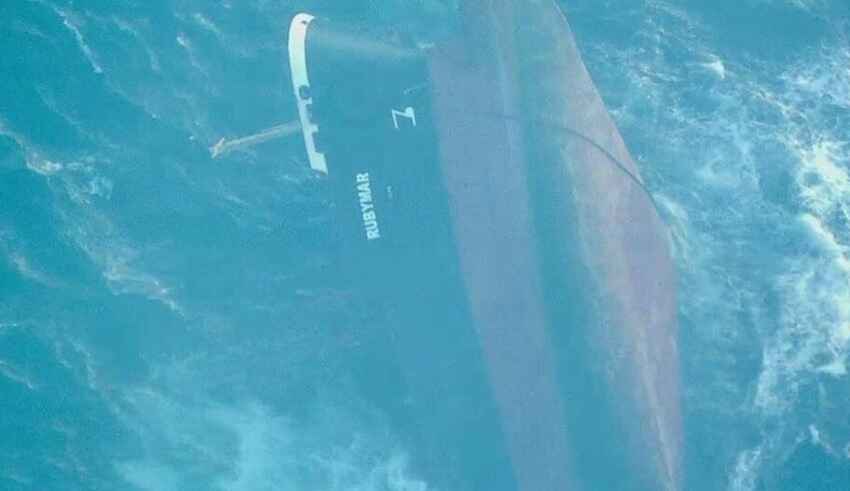
The Red Sea, a vital trade route which links Europe, Asia and Africa, has recently been pushed to the forefront of the geopolitical landscape due to increased instability in the region. Houthi rebels have been carrying out attacks on commercial vessels which have raised alarms about regional stability, freedom of navigation, and global trade security. In response, the U.S. and its allies have ramped up military operations, thus, risking escalation. While defensive action is necessary to protect trading routes, it is imperative to pursue a long-term pragmatic solution by developing a strategy which addresses the root causes of the issue.
As mentioned previously, the most noticeable impact of these attacks is the disruption of international trade. The region is home to the Bab el-Mandeb Strait, one of the world’s most vital chokepoints, through which nearly 10% of global trade flows. In an attempt to avoid the attacks by Houthi rebels, shipping companies have diverted their routes around the African continent by sending their vessels around the Cape of Good Hope, which has significantly increased shipping costs and resulted in delays. As a consequence, this has exacerbated inflationary tendencies and supply chain challenges, which are affecting economies worldwide. Nonetheless, a purely military approach might not be able to address the deeper geopolitical challenges posed by these hostilities and might drive further escalation, drawing regional and global powers deeper into the conflict. The Houthis are being backed by the Government of Iran and they claim that their attacks serve as retaliatory measures for Western support of Israel amid the ongoing war in Gaza. This, therefore, ties the ensuing conflict in the Red Sea with the broader geopolitical issues in the Middle East, which calls for a more nuanced approach that goes beyond military deterrence. However, from a legal perspective attacks on civilian shipping violate international law, particularly the United Nations Convention on the Law of the Sea, yet Maritime security enforcement in such contested waters is difficult without international coordination.
In order to address the issue, stabilize the Red Sea and ensure long-term security, it is pertinent to develop a multi-pronged strategy. In that regard, it is pivotal to enhance regional cooperation. For instance, establishing a Red Sea Security Framework involving Egypt, Saudi Arabia, Sudan, Djibouti, and Yemen as well as other global powers can help in carrying out effective coordinated responses. Additionally, an African Union or Arab League-led maritime security initiative could reduce external military dependency while strengthening regional stability. It is also pivotal that the international community revitalises diplomatic efforts. Thus, global leaders should reinvigorate negotiations between the Houthis and the Yemeni government under UN mediation in an effort to reach a political settlement in Yemen, which would reduce Iran’s influence and lessen the Houthis’ incentive for attacks. This would also require back-channel diplomacy with Iran, encouraging it to play a constructive role in regional stability.
Moreover, efforts should be made with regard to strengthening and improving maritime security in the Red Sea. This could be achieved by investing in satellite monitoring, intelligence-sharing, and joint naval patrols amongst the most affected states. As a consequence, threat detection and rapid response capabilities in the area would improve significantly. Additionally, leveraging technological innovations such as AI-powered vessel tracking systems could improve early-warning mechanisms and mitigate risks without unnecessarily escalating military tensions.
Furthermore, given that Yemen remains one of the world’s poorest nations, and economic deprivation fuels instability, it is imperative to consider economic incentives for stability in the region. Developing a comprehensive economic assistance plan, potentially spearheaded by the Gulf states, the EU and the UN could offer reconstruction aid and lead to an increase in job opportunities which would incentivize peace over conflict. This, coupled with Investments in infrastructure, renewable energy, and industry can ensure long-term stability in the area.
Finally, engaging Iran in broader negotiations is necessary. Since Iran’s support for the Houthis remains a key driver of Red Sea insecurity, engaging Tehran in diplomatic discussions about regional security, perhaps in the context of broader Gulf security talks, could provide avenues for de-escalation. A well-calibrated diplomatic approach, including potential sanctions relief in exchange for security guarantees, could foster constructive Iranian engagement in regional stability efforts.
Failure to address these issues comprehensively will perpetuate a cycle of retaliatory violence, further destabilizing an already volatile region. While military responses serve an immediate purpose, lasting stability can only be achieved through diplomatic engagement, economic development, and cooperative security initiatives. Global and regional actors must recognize that securing the Red Sea is not just about defending commercial shipping but about fostering peace and stability in one of the world’s most strategically significant regions. The time for a pragmatic and coordinated international response is now.
By The European Institute for International Relations















